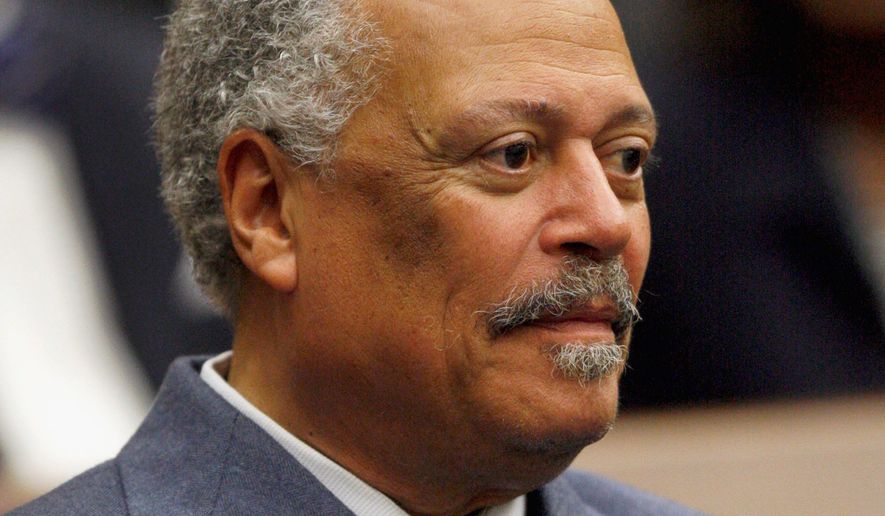The Justice Department said Monday that a federal judge doesn’t have the authority to deny its request to dismiss the case against Michael Flynn because the Executive Branch makes the prosecutorial decisions.
“Simply, put the district court has no authority to reject the Executive’s conclusion that those reasons justify a dismissal of the charges,” department lawyers wrote. “The government’s detailed explanation is far more than a mere conclusory statement, amply satisfying any procedural requirement.”
Department lawyers raised the argument in a brief with the D.C. Court of Appeals, which is weighing whether to dismiss the case.
The brief was filed shortly after the trial judge in the Flynn case filed his own motion with the appellate court saying he hasn’t rejected the Justice Department request and asked for more time to consider it.
Flynn last month asked the appellate court to dismiss his case after his trial judge did not immediately act on the Justice Department’s request.
The Justice Department has asked Judge Emmet Sullivan to drop the case against Flynn, who had pleaded guilty to lying to the FBI.
Judge Sullivan did not immediately grant the government’s motion. Instead, he tapped a former New York federal judge to argue against the Justice Department and determine whether Flynn should be held into contempt.
Specifically, Judge Sullivan wants to know whether Flynn should be held in contempt for telling the court twice he was guilty when he later sought to withdraw that plea and proclaimed his innocence.
Those actions prompted Flynn to ask the appellate court to intervene.
The Justice Department agreed with Flynn, saying Monday that Judge Sullivan doesn’t have the power to hold Flynn in contempt.
“Even if petitioner’s conduct were punishable as contempt, the authority to prosecute him would lie with the Executive, not the court,” the department said.
Flynn pleaded guilty to lying to the FBI about his contacts with the then-Russian ambassador. However, the Department sought to drop that case concluding his misstatements were not material to the investigation.
• Jeff Mordock can be reached at jmordock@washingtontimes.com.




Please read our comment policy before commenting.